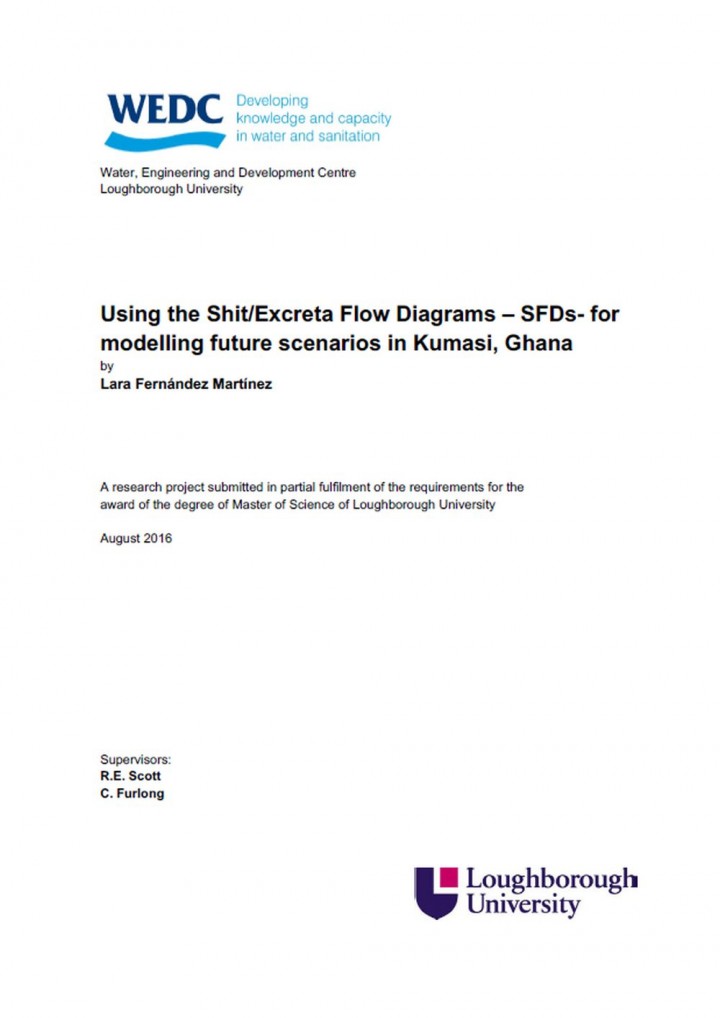Using the Shit/Excreta Flow Diagrams (SFDs) for modelling future scenarios in Kumasi, Ghana - A research project submitted in partial fulfilment of the requirements for the award of the degree of Master of Science of Loughborough University
Fernández-Martínes, L. (2016)

Published in: 2016
Pages: 132
Publisher:
Loughborough University
Author:
Fernández-Martínes, L.
Uploaded by:
SuSanA Admin
Partner profile:
common upload
5032 Views
356 Downloads
Location of library entry
The high population density of the cities does not allow families to safely abandon onsite sanitation facilities. This creates a need for a sanitation service chain to safely manage feacal waste. Hence, Shit/Excreta Flow Diagrams (SFD) are being developed as an analysis tool, which illustrates excreta pathways along the sanitation service chain in a city. The main objective of this study is to use the SFD methodology to model four possible future scenarios in Kusami and predict the changes in excreta flow patterns. Four differrent scenarios have been defined using the population growth rate, the number of public toilets, number of private toilets and the treatment plant capacity as main variable parameters. First, a "baseline scenario" was formed, in order to analyse the potential change in the SFD if there is no investment in the next years and the population continues to increase. Afterwards, two more scenarios were studied regarding the on-going projects or those that are about to start in the city. Finally, a combination of second and third scenarios was defined to illustrate the total change in the SFD if all projects are implemented.
Bibliographic information
Fernández-Martínes, L. (2016). Using the Shit/Excreta Flow Diagrams (SFDs) for modelling future scenarios in Kumasi, Ghana - A research project submitted in partial fulfilment of the requirements for the award of the degree of Master of Science of Loughborough University. Loughborough University
Filter tags
English Peri-urban SFD General Library Urban (entire city)















